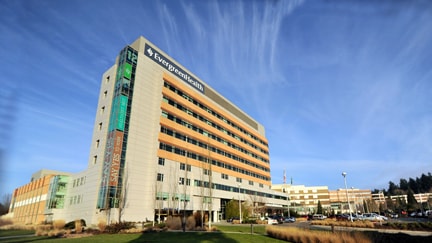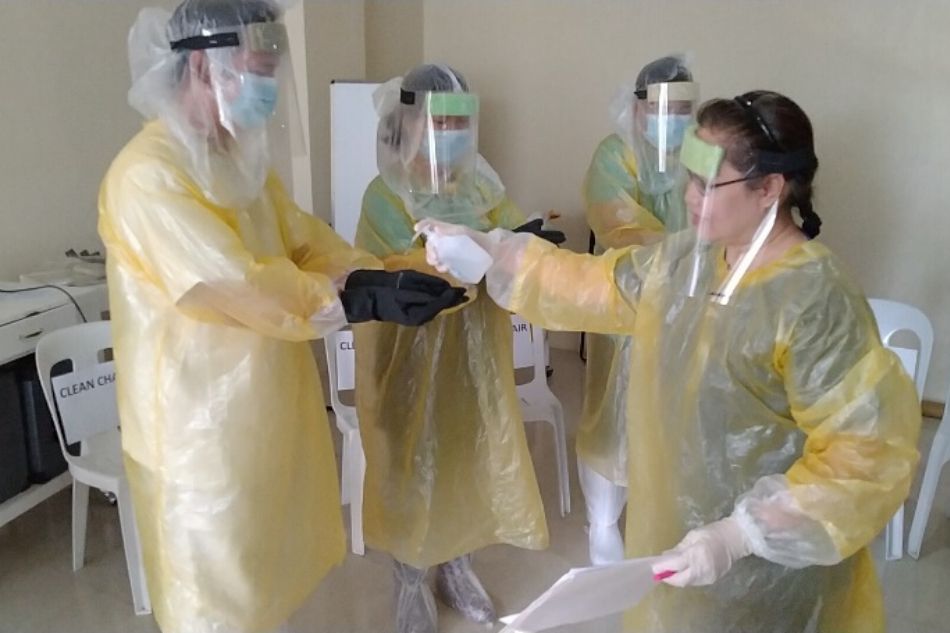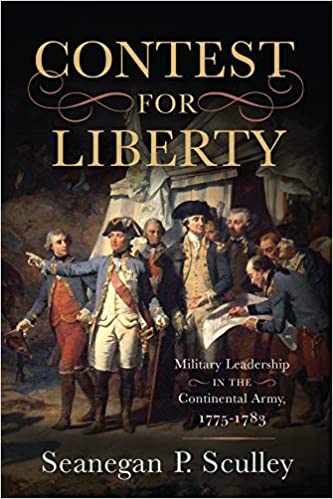
Two very different experiences this month have impacted me in profound ways.
One of course has to do with the coronavirus crisis. Earlier this month I visited the frontline healthcare providers at EvergreenHealth Medical Center in Seattle, WA at a time when they were the epicenter for the crisis in the US. I watched in admiration as the healthcare team carefully provided high level inpatient medical care to very ill patients infected with the virus.
The other was some stunning information I learned while reading a book on Continental Army leadership during the American Revolutionary War. You must be thinking – “How could these two things possibly be related?”

Let me start with my visit to EvergreenHealth. Well before ‘coronavirus’ became a household term, the senior leaders at EvergreenHealth quietly and steadfastly worked to prepare for this type of emergency. Of course, like all reputable hospitals, they provided appropriate training for their staff on emergency preparedness. For example, over the past decade they’ve sent hundreds of staff to train in emergency preparedness at the Center for Domestic Preparedness in Anniston AL.
However, the leaders at this hospital – perhaps more than at most hospitals – did other things to prepare.
What did they do?
In the months leading up to the pandemic, they walked around the hospital and talked with their employees. They made an effort to get to know a little about each of them. They proactively made themselves visible and listened to their employee’s concerns. They were engaged leaders…and approachable leaders.
Over time, because of these hundreds of seemingly innocuous exchanges, these leaders showed that they cared. What happened? A culture of mutual respect and collaboration was created. The staff grew to trust them.
Whether a soldier in the 18th century or a healthcare provider in the 21st century, when people know their leader cares for them, they’ll deliver.
Then, unexpectedly, coronavirus appeared on the world stage. Suddenly infected patients arrived at their hospital. Literally overnight, the staff at EvergreenHealth were treating a host of very ill patients – the first hospital in the US to treat coronavirus infected patients. How did the hospital team perform? Exceedingly well. The initial contact with the virus was intense and difficult, but the team was never overwhelmed. They made – and continue to make – excellent patient care decisions at every level and work bravely and unselfishly to provide the best care possible.

The bottom line is that over time – well before a crisis hit – the leaders created a culture of trust and, when a crisis did hit, the team performed at a very high level. This was the deciding factor that allowed the EvergreenHealth team to meet the challenge.
In fact, a visiting healthcare professional leading a team from an internationally recognized healthcare organization, sent the following email to the team leaders:
“I was amazed at how much the team was able to accomplish in such a quick period of time. I learned a lot from my time with your team and I think you’ll probably quickly find that your group will set the national example for how to get this [proper diagnosis and treatment of coronavirus patients] done as effectively as possible.”
What could the EvergreenHealth story possibly have to do with Continental Army leadership during the American Revolutionary War?
Actually, a lot.
A book that I happened to be reading this month is “Contest for Liberty: Military Leadership in the Continental Army”.  One striking fact that I learned while reading this book is that over the span of the 8-year war – 1775 to 1783 – members of the continental army were rarely paid, fed or clothed on a regular basis. Because of this – and not surprisingly – some units simply refused to fight. They committed mutiny. Why did some units fight while others chose not to? It depended on unit leadership. Those units who felt that their leaders cared for their well-being did fight; those that did not chose not to fight.
One striking fact that I learned while reading this book is that over the span of the 8-year war – 1775 to 1783 – members of the continental army were rarely paid, fed or clothed on a regular basis. Because of this – and not surprisingly – some units simply refused to fight. They committed mutiny. Why did some units fight while others chose not to? It depended on unit leadership. Those units who felt that their leaders cared for their well-being did fight; those that did not chose not to fight.
Before the Revolutionary War battles raged, what did the Continental Army leaders do to convey that they cared for their soldiers? Pretty much the same things that the leaders at EvergreenHealth did before their healthcare team was suddenly thrust into the coronavirus battle. Continental Army leaders were visible leaders – they walked around the campsites and talked with their soldiers. They made an effort to get to know a little about each of them and listen to their concerns. They were engaged leaders…and approachable leaders.
All organizations will face crisis’. Whether a novel infectious disease that suddenly appears on the world stage…or the chaos of military battle…the next crisis for your organizational could be around the corner. The great leaders prepare for this inevitability by proactively earning the trust of their subordinates. Whether a soldier in the 18th century or a healthcare provider in the 21st century, when people know their leader cares for them, they’ll deliver.
Be a great leader – be an engaged leader and an approachable leader. You’ll build trust and when, not if, the crisis hits, your team will perform.